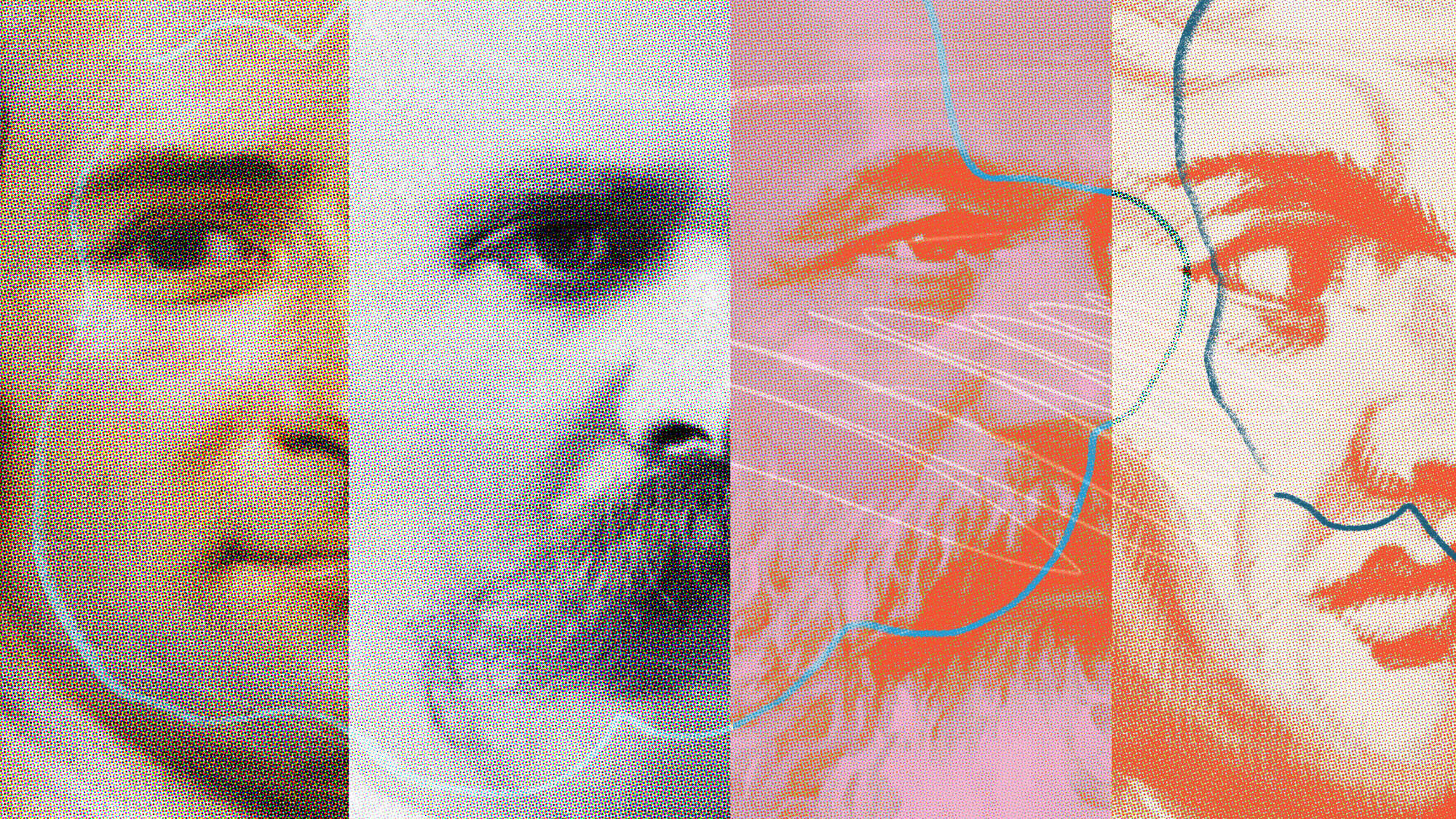Do we really need God or religion to tell us what’s right and wrong? Michael Shermer, the publisher of Skeptic Magazine, says that this kind of celestial-spiritual guidance really isn’t necessary. Or particularly effective. He makes a great case for being a moral realist — for example, studying past examples of war or slavery to learn morals from them — is much more effective than going back to mysticism like, say, The Bible, a fantastical book written by committee some 2,000 years ago and hardly updated since. Michael’s new book is Heavens on Earth: The Scientific Search for the Afterlife, Immortality, and Utopia.
Michael Shermer: Science and good and evil, good and bad, right and wrong, murder, all these things... human moral values. Well, I wrote a book about this, The Moral Arc. I am what’s called a moral realist: I think there are real moral values out there to be discovered. Now, not “out there” in the cosmos for astronomers to discover, I’m talking about in human nature, in human social nature.
And I’ll just give you a super simple example that I can’t believe anybody would disagree with, uh, this.
And it begins with Abraham Lincoln’s defense of why slavery is wrong. And he said simply, “If slavery is not wrong, nothing is wrong.” And I would agree and go further with a more recent example, if the Holocaust is not wrong, nothing is wrong.
Now, moral relativists or moral philosophers who are not moral realists, they don’t want to be called relativists—there’s other positions, but let’s just leave it at there’s other positions then moral realism.
Are you seriously going to argue that there’s some condition in which the Holocaust was okay, that it was acceptable? Now, now, mind you I’m talking about all of us in this category here talking about this are not thinking that God is the answer, that there’s some outside deity telling us what’s right and wrong, most of us that are in science or philosophy already reject that—going all the way back to Plato who debunked that idea in the first place—which is to say that if murder is really wrong or the Holocaust is really wrong or slavery is really wrong, why do we need God to tell us that?
I mean if those moral principles are out there and God is just telling us what it is, then why do we need the middleman? Just tell us the reasons why it’s wrong and okay. And if it’s just because God said it what if he didn’t say murder was wrong, would that make it right? No, it would still be wrong.
So either way, you don’t need God, so here we are in our bubble of just us trying to figure out what’s right and wrong. I argue in The Moral Arc that in fact we are already understanding what is right and wrong through the study of human nature and human culture and human history by saying there are certain things that are really better than other things, in the same way, that Kepler discovered planetary orbits are elliptical and not circular—given that he was doing his calculations correctly and given that planetary orbits really are elliptical and not circular he could hardly have discovered anything else.
We would eventually discover that democracies are better than theocracies or dictatorships just in terms of what the people want based on their survival and flourishing as sentient beings.
And that’s my moral foundation: survival and flourishing of sentient beings. We all want to survive and flourish. It’s in our nature. It’s what evolution designed us to desire. That is our moral foundation, our nature, that is who we are and what we want.
Okay, building from there: ok, so certain economic systems are really better toward of that than others, you will discover that if you are a rational being trying to figure out what’s the best way to structure things. Now it’s true that we can’t solve every moral issue by just running an experiment, but if you think about it every nation with a different constitution is an experiment. Every state in the United States, 50 different states have 50 different constitutions. They have 50 different laws about gun control or abortion—well not quite that but they have different variations on how it’s allowed. But just take anything. So these are 50 different experiments. Every Supreme Court Justice decision is an experiment. Let’s see what happens now that they’ve decided this let’s measure the consequences of this.
The 19th Amendment of abolishing alcohol, this was an experiment, a failed experiment. If your goal is to reduce the amount of drinking, that didn’t work, so the 21st Amendment abolished the 19th Amendment—those are all experiments.
So this is what I’m talking about: That is this idea that David Hume put forth that “you can’t derive an ought from an is,” this is a red herring. This is a misdirection. To that I say, Mr. Hume, tear down this wall. Of course, we can breach that wall.
Of course, we can discover certain things about what we ought to do based on the nature of reality. Now here I’m not talking about “because ants have slavery or chimpanzees have war that we should have slavery and war,” no. I mean: what is the real nature of war, and how should we reduce it? Understanding it through the scientific study of war is a way to get to attenuating it. That’s all I mean.
And the reason we want to attenuate it is because it’s bad for sentient beings, it reduces the amount of survival and flourishing. So that’s my argument for moral realism.






